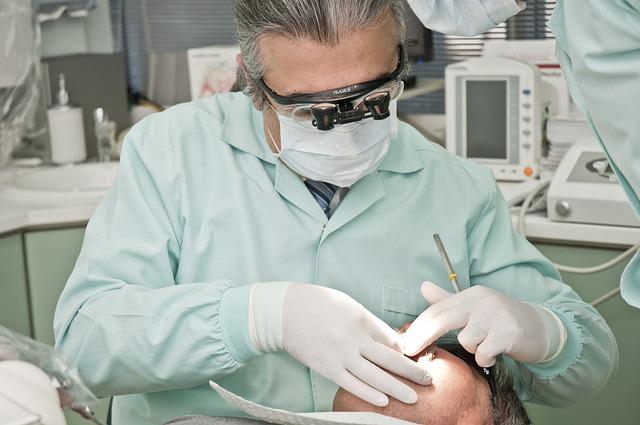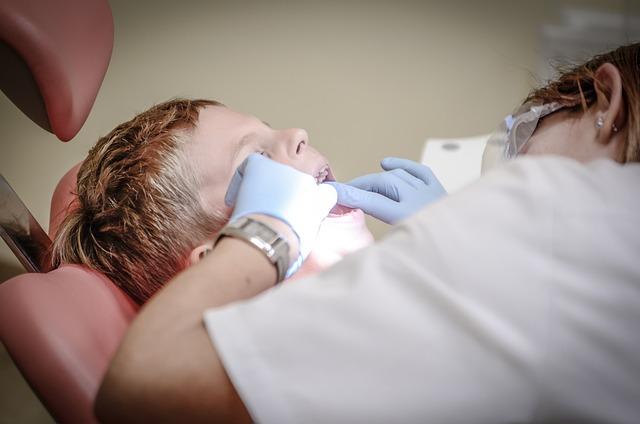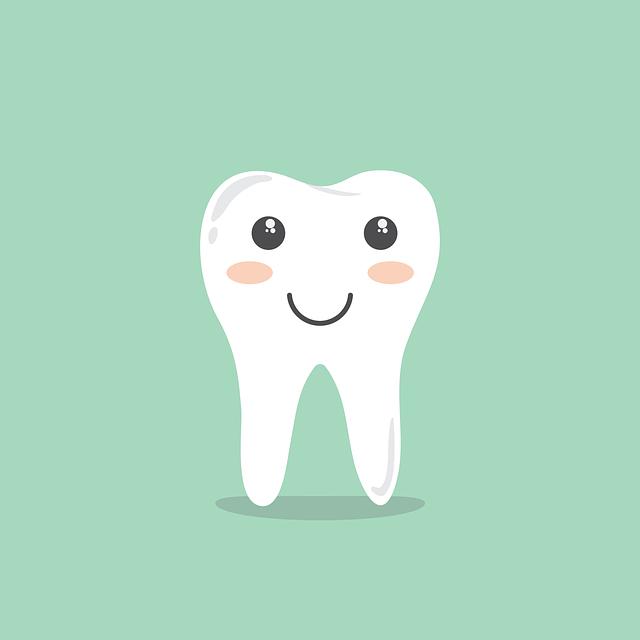Does Salt Water Clean Teeth? Dental Benefits Revealed
Saltwater has long been praised for its healing properties and its ability to cleanse wounds. But does this seemingly magical elixir have what it takes to keep our pearly whites sparkling? Today, we dive into the depths of dental science to reveal the truth behind the age-old question: Does saltwater clean teeth? Prepare to be enlightened as we navigate the vast ocean of information, armed with knowledge and a neutral perspective, to uncover the dental benefits that saltwater may hold. Leave your preconceived notions at the shoreline as we embark on this journey of discovery, aiming to bring clarity to this intriguing dental dilemma.
1. Understanding the Science: How Salt Water Affects Dental Health
When it comes to dental health, salt water can play a significant role in both prevention and treatment. The scientific understanding of how salt water affects our teeth and gums has been extensively studied and documented. Let’s delve into some key points:
Salt water as a natural disinfectant: Salt water has natural antiseptic properties that can help kill harmful bacteria and reduce inflammation in the mouth. Rinsing with salt water can promote healing and prevent infections, making it an effective remedy for minor gum irritations, mouth sores, and post-dental procedure care.
Reducing dental plaque and tartar buildup: Salt water rinses can act as a gentle and natural mouthwash, helping to reduce the buildup of plaque and tartar on teeth. Regular use of salt water rinses can aid in preventing gum disease, cavities, and bad breath.
Relieving tooth sensitivity: Salt water can provide temporary relief for tooth sensitivity. Gargling with a salt water solution can help desensitize the nerve endings in the teeth, providing a soothing effect.
2. Debunking Myths: Separating Fact from Fiction about Salt Water and Teeth
There are several common myths surrounding the effects of saltwater on teeth. Let’s separate fact from fiction and debunk these misconceptions:
Myth 1: Saltwater corrodes tooth enamel.
- This is fiction. Saltwater, when used in moderation, does not corrode tooth enamel. In fact, rinsing your mouth with saltwater can help maintain a healthy oral environment by reducing bacteria and inflammation.
- However, excessive exposure to saltwater or using highly concentrated solutions may lead to enamel erosion over time. It is important to use saltwater rinses as directed by dental professionals and not as a substitute for regular oral hygiene practices.
Myth 2: Saltwater can cure cavities.
- This is fiction. While saltwater rinses can provide temporary relief for toothaches and gum infections, they cannot cure cavities or reverse tooth decay. Only professional dental treatment, such as fillings or root canals, can effectively treat cavities.
- It is crucial to visit your dentist regularly for preventive care and treatment to maintain optimal oral health.
Myth 3: Saltwater can replace toothpaste.
- This is fiction. While saltwater rinses can be a helpful addition to your oral hygiene routine, they should not replace regular brushing and flossing with fluoride toothpaste.
- Brushing twice a day for two minutes and flossing daily are essential for removing plaque, preventing cavities, and maintaining fresh breath.
By debunking these myths, we can better understand the role of saltwater in dental care. Remember to consult with your dentist for personalized advice and recommendations tailored to your oral health needs.

3. Salt Water Rinse: An Ancient Remedy for Modern Dental Care
Using salt water as a rinse is not a new concept; in fact, it has been used for centuries as a natural remedy for various oral health issues. This ancient practice continues to be relevant in modern dental care due to its numerous benefits. Here are some reasons why incorporating a salt water rinse into your oral hygiene routine can be highly beneficial:
- Reduces inflammation and promotes healing: Salt water has anti-inflammatory properties that can help soothe irritated gums and reduce swelling. It also aids in the healing process of oral wounds, such as canker sores or post-surgical sites.
- Antibacterial and antiseptic properties: Salt water acts as a natural disinfectant, killing harmful bacteria and preventing the growth of microorganisms in the mouth. This can help prevent infections and maintain overall oral health.
- Relieves pain and discomfort: Rinsing with salt water can provide temporary relief from toothaches, sore throat, or other oral discomforts. It helps to numb the affected area and soothe any associated pain.
- Improves bad breath: Salt water rinse can help eliminate odor-causing bacteria in the mouth, thereby freshening breath and reducing bad breath.
It is important to note that while salt water rinses can offer these benefits, they should not replace regular brushing, flossing, and professional dental care. However, incorporating this simple and natural remedy into your oral hygiene routine can be a valuable addition in maintaining good dental health.

4. The Healing Power of Saline: Exploring the Dental Benefits of Salt Water
Saline, or saltwater, has been used for centuries as a natural remedy for various health conditions, and its healing power extends to the realm of dental care as well. Let’s delve into the dental benefits of salt water and how it can promote oral health.
1. Reducing inflammation: Saltwater acts as a natural anti-inflammatory agent, making it an effective solution for reducing swelling and inflammation in the gums. Rinsing with salt water can provide relief from gum irritation caused by conditions like gingivitis or after dental procedures such as extractions.
2. Promoting healing: Saltwater can accelerate the healing process by increasing blood flow to the gums. It helps to remove bacteria and debris from the affected area, allowing the gums to heal more quickly. Additionally, the saline solution helps to create an optimal environment for tissue regeneration, leading to faster recovery.
3. Fighting bacteria: Saltwater has antimicrobial properties that can effectively combat harmful bacteria in the mouth. The saline solution can help reduce the bacterial population responsible for tooth decay and gum disease, promoting better oral hygiene and preventing dental issues in the long run.
By harnessing the healing power of saltwater, we can enhance our dental care routine and enjoy the benefits of a healthier mouth. Incorporating saltwater rinses into your oral hygiene practices can provide a natural and effective way to promote oral health and maintain a beautiful smile.

5. Salt Water vs. Traditional Mouthwash: Which is Better for Oral Hygiene?
When it comes to oral hygiene, there are several options available to keep your mouth clean and healthy. Two popular choices are salt water and traditional mouthwash. Both have their benefits, but which one is better? Let’s take a closer look at the pros and cons of each.
Salt Water:
- Natural and inexpensive: Salt water is a natural remedy that can be easily prepared at home without any added chemicals. It is also a cost-effective alternative to traditional mouthwash.
- Antibacterial properties: Salt has antibacterial properties that can help kill bacteria in the mouth, reducing bad breath and preventing infections.
- Gentle on sensitive gums: Salt water is a gentle solution that can be particularly beneficial for individuals with sensitive gums or mouth sores.
Traditional Mouthwash:
- Convenience and variety: Traditional mouthwash is readily available at most stores and comes in a wide variety of flavors, giving you more options to choose from.
- Effective against plaque and cavities: Many commercial mouthwashes contain ingredients like fluoride, which can help prevent tooth decay and reduce the buildup of plaque.
- Long-lasting freshness: Mouthwash often provides a longer-lasting fresh breath sensation compared to salt water rinses.
Ultimately, the choice between salt water and traditional mouthwash depends on your personal preferences, oral health needs, and any specific concerns you may have. Consulting with your dentist or oral healthcare professional can help you determine which option is best for you.
6. Salt Water as a Natural Dental Antiseptic: An Effective Alternative?
Many people are seeking natural alternatives for dental care, and one option that has gained attention is salt water as a dental antiseptic. While there is no shortage of claims about the effectiveness of salt water for oral health, it is important to examine the evidence before drawing any conclusions.
Research has shown that salt water can have antimicrobial properties, making it potentially effective in reducing the growth of bacteria in the mouth. Salt water has been used for centuries as a natural remedy for various ailments, including oral health issues. Its ability to help with inflammation and promote wound healing has also been noted.
However, it is essential to keep in mind that salt water should not replace regular dental care or prescribed treatments. It can be used as a complementary measure to maintain oral hygiene and alleviate minor oral health problems. Consult with your dentist or healthcare professional to determine if using salt water as a dental antiseptic is a suitable option for you.
- Benefits of using salt water as a dental antiseptic:
- May help reduce bacteria in the mouth
- Potential anti-inflammatory properties
- Can aid in wound healing
In conclusion, while salt water may have some potential benefits as a natural dental antiseptic, it is crucial to approach it as a supplementary measure rather than a substitute for professional dental care. Always consult with a healthcare professional for personalized advice and recommendations.
7. Research-Backed Evidence: Salt Water’s Role in Preventing Gum Disease
Research has consistently shown that salt water can play a crucial role in preventing gum disease. The natural antibacterial properties of salt make it an effective remedy for maintaining healthy gums. Here’s what the research-backed evidence reveals:
1. Reduces inflammation: Salt water gargles have been found to reduce inflammation in the gums, which is a common symptom of gum disease. The salt helps to draw out the fluid and reduce swelling, providing relief and promoting healing.
2. Kills bacteria: Salt water acts as a natural disinfectant, killing harmful bacteria that can lead to gum disease. It cleanses the mouth, removing bacteria and preventing their growth, thus reducing the risk of gum infections.
3. Promotes healing: Studies have shown that rinsing with salt water can promote the healing of gum tissue. It helps to remove debris and promote the growth of healthy tissue, accelerating the healing process.
By incorporating salt water rinses into your oral hygiene routine, you can harness the power of this research-backed remedy to prevent gum disease and maintain optimal oral health.
8. Harnessing the Minerals: How Salt Water Can Strengthen Tooth Enamel
One of the most essential minerals for maintaining strong and healthy teeth is undoubtedly salt water. Yes, you read that right! Salt water can be a powerful ally in strengthening tooth enamel. Here’s how:
1. Remineralization: Salt water contains a high concentration of minerals such as calcium, fluoride, and phosphate, which are crucial for remineralizing tooth enamel. These minerals help repair the microscopic damage that occurs daily due to acids and plaque buildup.
2. Antibacterial properties: Salt water has natural antibacterial properties, making it effective in fighting harmful bacteria that can lead to tooth decay and gum disease. It can help control the growth of bacteria in the mouth, promoting a healthier oral environment.
3. Saliva stimulation: Rinsing with salt water stimulates saliva production. Saliva plays a vital role in maintaining tooth health by neutralizing acids, washing away food particles, and providing essential minerals to teeth. It acts as a natural defense mechanism against tooth decay.
By harnessing the power of salt water, you can give your tooth enamel an extra boost in resilience and protection. Incorporating salt water rinses into your oral hygiene routine can contribute to a healthier smile in the long run.
9. The Soothing Effects of Salt Water on Oral Inflammation and Sore Gums
Oral inflammation and sore gums can be quite uncomfortable and bothersome. However, there is a natural remedy that can help alleviate these symptoms – salt water. have been known for centuries and are backed by scientific research.
Here are some key benefits of using salt water for oral health:
- Reduces inflammation: Salt water has anti-inflammatory properties that can help reduce swelling and redness in the gums. It can provide relief from discomfort caused by gum disease, gingivitis, or other oral conditions.
- Kills bacteria: Salt water has antimicrobial properties that can help kill bacteria in the mouth. Rinsing with salt water can help prevent the growth of harmful bacteria, which can contribute to gum disease and other oral infections.
- Promotes healing: Salt water can help promote the healing process of oral wounds and ulcers. It creates an environment that is unfavorable for bacteria to thrive, allowing the body to heal more effectively.
Using salt water as a mouth rinse is simple and cost-effective. To make a salt water solution, dissolve half a teaspoon of salt in a glass of warm water. Swish the solution around your mouth for about 30 seconds, focusing on the areas affected by inflammation or soreness. Spit out the solution and repeat a few times a day or as needed.
It’s important to note that while salt water can provide temporary relief for oral inflammation and sore gums, it is not a substitute for professional dental care. If you’re experiencing persistent or severe symptoms, it’s always best to consult a dentist for a proper diagnosis and treatment.
10. Integrating Salt Water into Your Dental Routine: Tips for Optimal Oral Health
When it comes to maintaining optimal oral health, incorporating salt water into your dental routine can provide numerous benefits. Salt water, known for its natural antiseptic properties, can help promote a healthier mouth by reducing bacteria, soothing gum inflammation, and aiding in the healing process. Here are some helpful tips to integrate salt water into your daily oral care:
- Regular Salt Water Rinse: Start by mixing half a teaspoon of salt in a warm glass of water. Gently swish the solution in your mouth for about 30 seconds and then spit it out. This simple rinse can effectively kill bacteria and reduce bad breath.
- Salt Water Mouthwash: For a more thorough cleaning, create a salt water mouthwash by dissolving one teaspoon of salt in a cup of warm water. Use this solution to gargle and rinse your mouth after brushing and flossing. It can help control plaque, prevent gum disease, and promote overall oral hygiene.
- Salt Water Compress: If you’re experiencing gum sensitivity or have a canker sore, consider using a salt water compress. Dissolve a teaspoon of salt in a small cup of warm water, soak a clean cloth in the solution, and apply it to the affected area for a few minutes. Repeat this several times a day to reduce inflammation and aid in the healing process.
By incorporating salt water into your dental routine, you can take proactive steps towards maintaining optimal oral health. Remember to consult with your dentist for personalized advice and to ensure it aligns with your specific dental needs.
Frequently Asked Questions
Q: Does salt water clean teeth effectively?
A: Yes, salt water has been proven to have dental benefits and can effectively clean teeth.
Q: What makes salt water beneficial for dental hygiene?
A: Salt water possesses antibacterial properties that can help reduce the presence of harmful bacteria in the mouth, promoting better oral health.
Q: How does salt water work in cleaning teeth?
A: When used as a mouth rinse, salt water can act as a natural disinfectant, flushing out debris and food particles, while also soothing inflamed gums.
Q: Can salt water help in preventing gum disease?
A: Yes, salt water rinses can aid in preventing gum disease by reducing inflammation and fighting against bacteria that can lead to gum infections.
Q: Is salt water a good alternative to regular mouthwashes?
A: While salt water can provide some dental benefits, it should not replace regular mouthwashes that are specifically formulated to target various oral health issues.
Q: Can salt water help with tooth sensitivity?
A: Salt water can temporarily alleviate tooth sensitivity by reducing inflammation. However, it is important to consult a dentist for a proper diagnosis and long-term solution.
Q: Are there any potential side effects of using salt water for oral hygiene?
A: Salt water rinses are generally safe, but excessive use may lead to dry mouth or irritation. It is recommended to use salt water as a supplement to regular dental care.
Q: How should salt water be used for dental hygiene?
A: To use salt water as a mouth rinse, dissolve half a teaspoon of salt in warm water and swish it around your mouth for about 30 seconds. Spit it out and rinse with plain water afterward.
Q: Can salt water whiten teeth?
A: Salt water alone does not possess the ability to whiten teeth significantly. Professional teeth whitening treatments or whitening toothpaste are more effective options.
Q: Is salt water suitable for everyone to use?
A: Salt water rinses are generally safe for most individuals. However, those with high blood pressure or certain medical conditions should consult their dentist or healthcare provider before use.
The Conclusion
In conclusion, the question of whether salt water can clean teeth has been thoroughly examined. The dental benefits of salt water have been revealed, showcasing its potential as a natural and effective oral hygiene solution. Here are the key takeaways from our exploration:
1. Salt water acts as a natural disinfectant, helping to kill harmful bacteria that contribute to dental issues such as plaque buildup and gum disease.
2. The saline solution created by salt water can aid in reducing inflammation and promoting gum health, making it a valuable addition to your oral care routine.
3. Regular rinsing with salt water can help alleviate minor toothaches and soreness, providing temporary relief until professional dental care can be sought.
4. It is important to note that while salt water can provide certain dental benefits, it does not replace regular brushing, flossing, or professional cleanings. These practices remain essential for maintaining optimal oral health.
5. As with any dental solution, it is crucial to consult with your dentist before incorporating salt water rinses into your routine, especially if you have specific dental conditions or sensitivities.
By understanding the dental benefits of salt water and utilizing it appropriately, you can leverage this natural remedy to enhance your oral hygiene and overall dental health.






